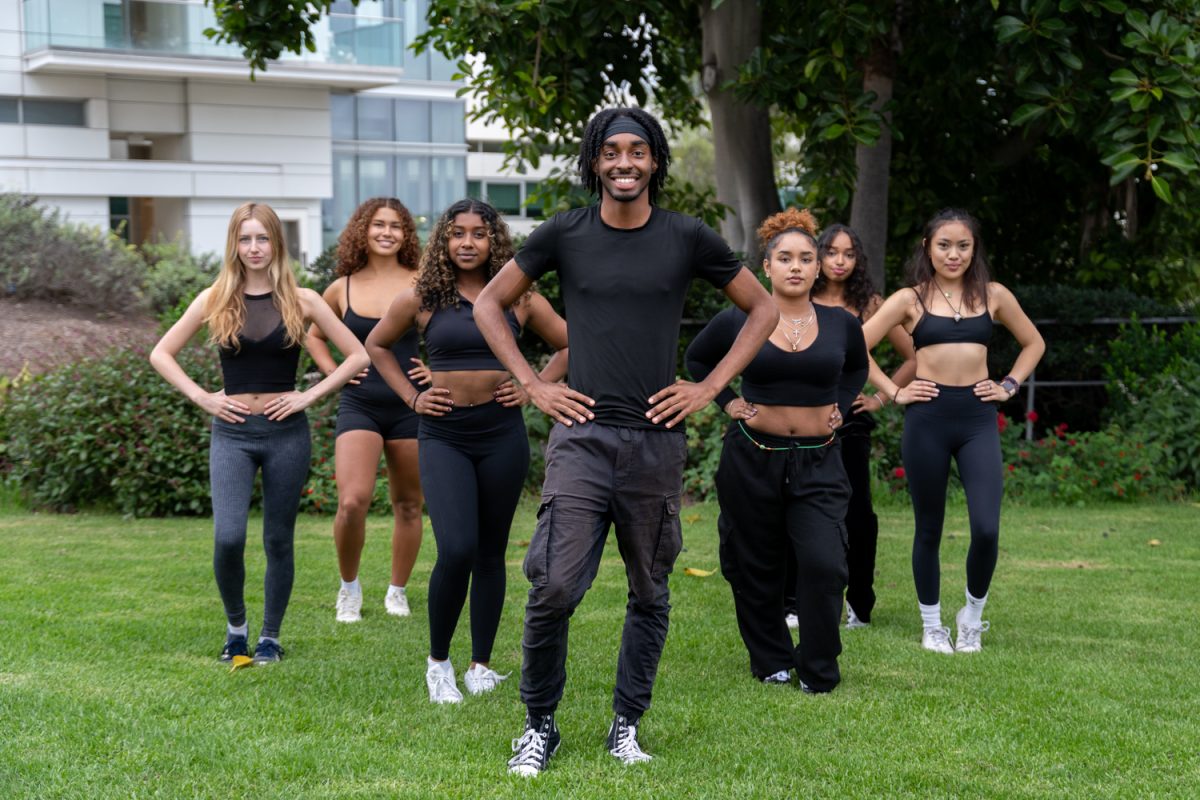Groups of like-minded advocates met Sunday evening to learn about environmental innovations happening locally and coast to coast.
The environmental horticulture department co-sponsored the “Central Coast Bioneers Film Showcase” alongside Santa Barbara Permaculture Network and Ecologistics from 5 to 8 p.m. Sunday evening at the Fe Bland Forum, where clips from the 27th Annual Bioneers Conference were shown.
“Bioneers are people that look at solutions found in nature to solve human problems,” said Stacey Hunt, chief executive officer for Ecologistics. “Bioneers [Conference] is where you go to get energized, to get excited again about solutions.”
Early arrivals to the event were treated to samples of seaweed products from AMA SeaBeauty, organic herbal dandelion coffee from Carpinteria-based company Teecchino and informational flyers from the Community Environmental Council.
Nonprofit organization Ecologistics, headquartered in San Luis Obispo, aims to create resilient and healthy communities for Central Coast residents that are environmentally and economically sustainable. Service areas include Monterey, San Luis Obispo and Santa Barbara Counties.
Ecologistics last hosted the showcase in Santa Barbara in 2013. Hunt said Bioneers allows Ecologistics the licensing and media rights to distribute its videos to the public to offer a showcase such as this one.
“We try to reach out to all the counties,” Hunt said. “We love to bring the information anywhere because it’s really good information.”
The first clip featured a mural created by London-based eco-artist Louis Masai of a coral reef system. Masai uses his street art to raise awareness about endangered species and ecosystems such as the coral reef. A statistic from the film said that by 2050, 90 percent of reef systems will be in danger.
“Coral reefs are resilient,” a quote from the clip read. “Our smallest actions together can help them to regenerate.”
The second clip featured speaker Bill McKibben, the founder of grassroots climate campaign 350.org, who used the analogy of “lights going out on earth” to refer to the loss of natural systems such as arctic sea ice.
“I see lights go out,” McKibben said. “When they go out, we don’t see as well as we used to. These lights aren’t just going off on their own, they’re being turned off.”
Nonetheless, McKibben expressed hope that other lights were coming on, including the increasing affordability of solar panels, whose prices have decreased by 80 percent in the last 10 years.
The third clip introduced biologist Janine Benyus, founder of Biomimicry, an organization that draws inspiration from nature to seek sustainable solutions and innovations. She argued that plants grow together as whole networks or “parties” and that we need to understand them to “help the helpers.”
“We need to make the planet great again,” Benyus joked.
The pace picked up again with the fourth clip which featured youth activist and hip hop artist Xiuhtezcatl Martinez, who rapped two songs for the audience. Martinez is the founder of Earth Guardians, an organization of young activists, artists and musicians devoted to defending the planet.
The feature film of the evening, “The Least Deadly Catch: Ocean Farming in the Climate Change Era,” was introduced by Daniel Marquez of Pharmersea, a 25-acre sea farm off Ellwood Pier near Bacara Resort where Marquez and his wife Antoinette grow kelp.
The film featured fisherman Bren Smith, founder of GreenWave and winner of the 2015 Buckminster Fuller Challenge award, which recognizes efforts to identify and measure effective, enduring solutions to global sustainability challenges.
“Ecological crisis has nothing to do with the environment,” Smith said. “It has to do with the economy. There will be no jobs on a dead planet.”
Smith emphasized the need to adopt more seaweed in culinary cuisine, stating that seaweed is the most affordable way to grow and eat, and that a network of farms the size of the state of Washington could feed the world. Smith came up with the idea of “restorative 3D ocean farming” that has low aesthetic impact, small footprint and protects the environment.
“Climate change is going to force us into the ocean,” Smith said. “This is our opportunity to protect rather than privatize our oceans.”
After the film, Marquez discussed Pharmersea and compared it to Smith’s model of 3D ocean farming, where the Marquezs use their seaweed crops to create cosmetics and skincare products. The company sells the products under its brand AMA SeaBeauty. Marquez said she hopes to open up a storefront on State Street by April 30.
Margie Bushman, founder of Santa Barbara Permaculture Network, said she hopes to host the event again next year.
“We were very happy with the outcome,” Bushman said. “We always thought it would be powerful and we would like to keep doing it.”
Ecologistics will host a second Central Bioneers Showcase from April 25 to April 27 at Cal Poly San Luis Obispo.






![Bingbong, a 1 and a half year old Belgian Malse Shepard mix, watches as a car passes by on Oct. 22 at the County of Santa Barbara Animal Shelter in Santa Barbara, Calif. "[Bingbong] is extremely playful, and enjoys his time with humans. He's a little stressed when he's left alone in the kennels...he really just wants a home," Animal Handler Dustin Fujuikawa said.](https://www.thechannels.org/wp-content/uploads/2024/10/AZFoster-3-1200x800.jpg)
